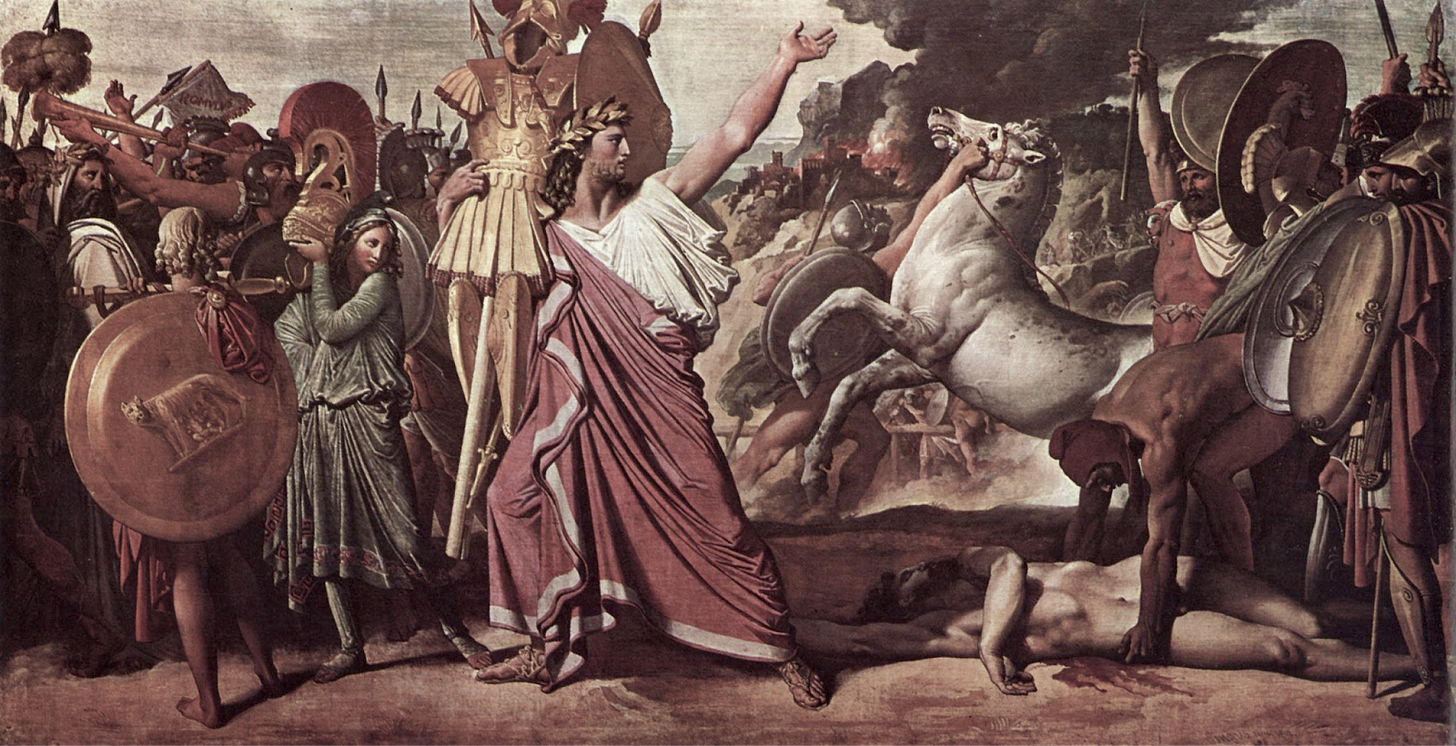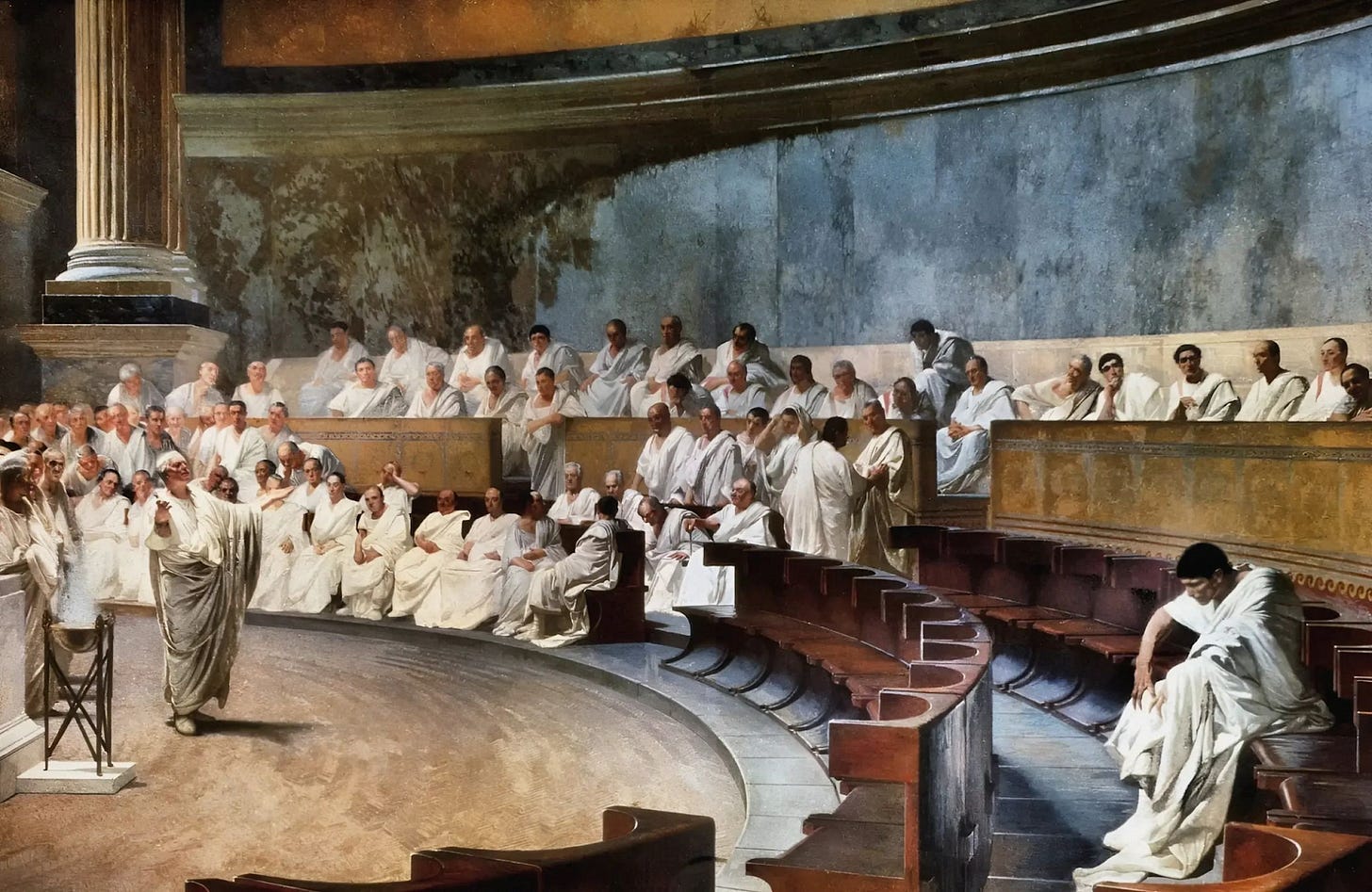Anacyclosis: Polybius on the Political History of Rome from Romulus to Augustus
How the political order reflects moral character
In Book VI of his Histories, the ancient historian and political theorist Polybius offers one of the most perceptive accounts of political constitutions, explaining that all states originate in monarchy before inevitably degenerating through successive phases into collapse. “Such is the cycle of political revolution, the course appointed by nature in which constitutions change, disappear, and finally return to the point from which they started”.
This sober reflection shatters the illusion of permanence that modern states so often find consolation in.
Rome, long regarded as one of the greatest imperial powers in history, provides the most compelling stage upon which this cyclical drama of political transformation unfolds. From the pastoral monarchy of Romulus to the centralised autocracy of Augustus Caesar, the Roman constitutional evolution reflects Polybius’ theory of anacyclosis with striking fidelity.
This cycle, Polybius argues, is governed not by caprice but by an immutable law – one as inexorable as nature itself, from which none can escape, and the modern world is no exception.
Reminder: you can get tons of useful members-only content and support our mission for a few dollars per month 👇
Two full-length, new articles every single week
Access to the entire archive of useful knowledge that built the West
Get actionable principles from history to help navigate modernity
Support independent, educational content that reaches millions
The Rule of One: Monarchy to Tyranny
The cycle of political constitutions begins with monarchy, the most primitive form of rule, in which a single sovereign governs for the common good. As Polybius observes, when humanity emerges from its savage and lawless state, it instinctively submits first to the strongest and bravest – one whose natural ability and character demands it. Such was early Rome under Romulus and his successors – a rustic community united by kinship and piety. Romulus founded his city on the Palatine Hill, securing sole rule by slaying his own brother Remus. He then led a series of campaigns against the Sabines, and upon his death left Rome as one of the most formidable city-states on the Italian Peninsula.
Monarchy satisfies the primal human desire for security and paternal guidance. In a world fraught with social and political uncertainty, the figure of the king becomes a symbol of stability and a father to the tribe. Yet monarchy, like all things human, is perishable.
Although it is the most natural form of government, the fundamental flaw of monarchy is that when vicious men inherit positions of power, it exposes – or rather, magnifies – that they are undeserving of the office. Tyranny, which Polybius refers to as “the vicious form of monarchy” is marked by the ruler’s pursuit of private gain at public expense. Tyranny, swollen with hubris, drinks the intoxicating elixir of limitless power, and persuades men that they are somehow immune to the laws of those they are ordained to rule.
Lucius Tarquinius Superbus was the very image of tyranny. In 509 BC, the seventh king of Rome was overthrown after his son’s violation of Lucretia – a noblewoman who, overcome with shame, took her own life. The Roman response was radical: they abolished monarchy altogether and, in its place, established a Republic founded on the rule of the few thus moving the political cycle from tyranny to aristocracy.
The Rule of the Few: Aristocracy to Oligarchy
In Polybius’ cycle, aristocracy stands as the rule of the few whose merit and character set elevate them above the people, and for this purpose they are entrusted to govern. The early Roman Republic embodied this lofty ideal, its destiny shaped by the wisdom of the Senate, a venerable council of elders whose counsel carried the Mos Maiorum – the “Way of the Ancestors” and helped the Republic navigate through some of the most challenging periods of their history.
Yet aristocracy, too, is transient. Polybius warned that when the few grow accustomed to prosperity and success, they begin to indulge in the luxuries of power, becoming complacent and corrupt. In time, aristocracy degenerates into oligarchy, where the rule of the best gives way to the rule of the few – not because of virtue, but because of their ability to secure power through privilege.
By the second century BC, the Roman Senate had become an oligarchic enclave. The conquest of the Mediterranean poured wealth into patrician purses, breeding avarice and complacency among those once paragons of virtue, and weakening Roman institutions. Oligarchy thrives on exclusion, as a privileged few fortify themselves against the many, hoarding wealth and influence while cloaking their dominance in the rhetoric of stability. Eventually, popular grievances grow so severe they can no longer be assuaged by words, and the masses turn to leaders who promise reform – or rather, salvation. In Rome, this is most evident in Tiberius and Gaius Gracchus, whose meteoric rise and tragic fall testify to the precarious nature of oligarchy, marking a decisive turning point in the Republic’s descent toward destabilisation and civil war…







